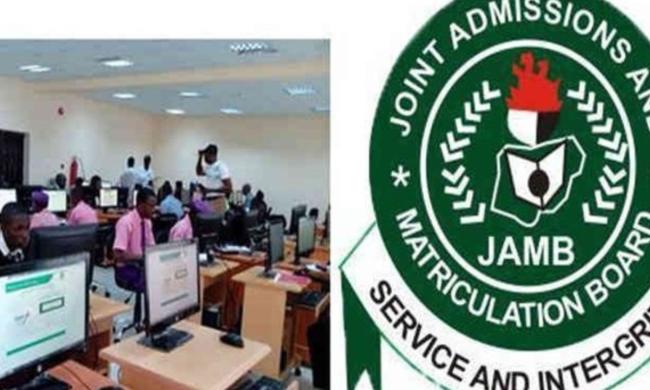JAMB RAISES ALARM OVER USE OF AI TO CHEAT DURING ITS UTME EXAMS, USE OF STRONG-ROOMS, AND HACKING INTO ITS DEVICES BY DESPERATE STUDENTS

JAMB has raised alarm over increasingly sophisticated cheating strategies discovered during the 2025 examination cycle. These include AI-enhanced photo manipulation to enable impersonation, hacking into CBT networks, using hidden “strong rooms” to extend local network coverage, and hiring “mercenaries” to sit exams for candidates.
“While some Nigerians are busy dissipating energies on conspiracy theories and spread of hatred, our future is being put in jeopardy by advanced level of digitalised fraud,” JAMB warned.
“During the 2025 examinations, further high level malpractices were uncovered, which led to the withdrawal of some results and the arrest of several culprits across the country some of whom we understand have made useful confessions.”
Over 3,000 candidates have been identified as having benefited from or participated in such fraudulent practices, and JAMB stated that their results will be withdrawn once investigations are concluded.
The Board also pushed back against tribal or sectional claims tied to the cancellation of sessions in six states, clarifying that no high scores were recorded in those sessions, as 99% of affected candidates scored below 200.
In another case that drew public attention, JAMB discredited a viral social media claim by one Olisa Gabriel Chukwuemeka, a first-year Public Health student at Adekunle Ajasin University, Akungba-Akoko (AAUA), who falsely claimed to have scored 326 in the 2025 UTME.
Investigations showed that Chukwuemeka had doctored his 2024 UTME result of 203 to impersonate a high-performing 2025 score. His actual 2025 result, recorded in Lagos, was 180 and has since been withdrawn. Following the exposé, the student reportedly deactivated his X (formerly Twitter) account.
On complaints about result checking costs, JAMB clarified that its SMS shortcode service (55019/66019) is subsidised and designed to protect candidates’ personal data from cybercafés and third-party platforms.
Candidates were urged not to recheck already released results unless they receive a direct notification via SMS, email, or their JAMB profile indicating a withdrawal due to infractions.
JAMB expressed appreciation to Nigeria’s security agencies for their support in uncovering examination fraud. The Board also thanked WAEC, Ahmadu Bello University, the Teachers Registration Council of Nigeria, and the National Examinations Council for adjusting their own exam schedules to accommodate the resit.
The Board commended the resilience of affected candidates and reaffirmed its commitment to a technology-driven, fair, and credible examination process. Despite mounting challenges, JAMB maintained that the CBT model remains the best option for curbing malpractice and modernising Nigeria’s education system.
Dr. Fabian Benjamin concluded the statement by urging Nigerians to unite in protecting the integrity of the country’s education system against increasingly sophisticated forms of cheating.
Sahara Reporters



Comments are closed.